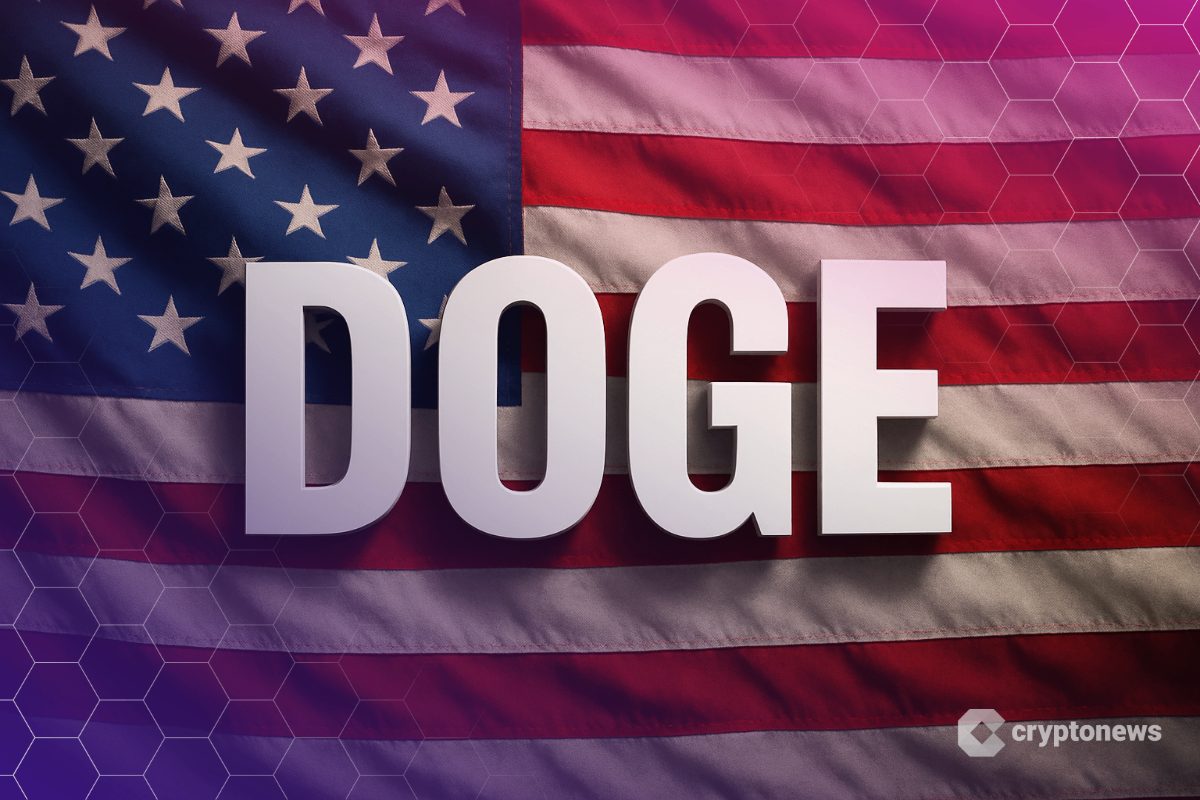In the past 24 hours, the total network contract liquidation was 241 million US dollars, mainly short orders
2025/07/01 23:30

Disclaimer: The articles reposted on this site are sourced from public platforms and are provided for informational purposes only. They do not necessarily reflect the views of MEXC. All rights remain with the original authors. If you believe any content infringes on third-party rights, please contact [email protected] for removal. MEXC makes no guarantees regarding the accuracy, completeness, or timeliness of the content and is not responsible for any actions taken based on the information provided. The content does not constitute financial, legal, or other professional advice, nor should it be considered a recommendation or endorsement by MEXC.
You May Also Like

DOGE Presses SEC to Relax SPAC Rules – Will Musk’s Influence Tip the Scales?
The Department of Government Efficiency (DOGE) is now targeting the SEC’s rules on Special Purpose Acquisition Companies (SPACs) and confidential data reporting by private investment advisers. Per Reuters, the SEC adopted those rules during the Biden administration to enhance investor protection and systemic risk monitoring. DOGE, a Trump administration initiative created to cut federal regulatory burdens, has recently approached SEC staff to explore revisions to these rules. This comes as some businesses view it as excessive. The talks are part of a broader deregulatory push by the Trump administration, intended to reduce compliance costs and spur market activity. Executive Order Spurs Deregulatory Action Earlier in March, Elon Musk’s DOGE task force joined the SEC under a new liaison effort. DOGE staff were to receive internal system access and be treated as SEC personnel. An internal email said standard ethics and IT protocols would apply. 🔍 @elonmusk ’s DOGE team gains access to SEC systems under a new liaison initiative, sparking debates on regulatory independence and public-private collaboration in financial governance. #CryptoRegulation #SEC https://t.co/lRHLqWwkj8 — Cryptonews.com (@cryptonews) March 28, 2025 Today, Reuters reported that a White House spokesperson said the administration is working with the SEC “to more efficiently maintain fair and orderly markets while protecting everyday investors.” However, DOGE’s involvement in SEC policy has unsettled some SEC staff. The agency, while led by a presidentially appointed chair, is widely regarded as an independent regulator. Traditionally, it limits policy coordination with the White House to maintain regulatory impartiality. Amanda Fischer, policy director at financial reform group Better Markets, said DOGE’s role “raises serious concerns” about potential conflicts of interest. “It’s outrageous that outside designees to the agency, who presumably were not selected by the chair, would have a say in rulemaking,” said Fischer, who served as chief of staff to former SEC Chair Gary Gensler. In contrast, the deregulatory effort appears to align with views held by Republican SEC commissioners Mark Uyeda and Hester Peirce. The duo has previously objected to the Biden-era rules on SPACs and private funds. They argue that such regulations stifle innovation and burden firms unnecessarily. Uyeda and Peirce criticized the removal of a legal “safe harbor” that protected SPAC sponsors from liability for forward-looking statements. They also opposed the expanded reporting requirements under Form PF, a rule requiring private fund advisers to submit more detailed data to regulators. SEC Indicates Willingness to Engage with DOGE According to the report, the SEC confirmed its collaboration with DOGE, stating that both parties are working “to find cost efficiencies and ensure public funds are being used as effectively as possible.” While the agency has not indicated specific policy reversals, discussions with exchange operators about loosening SPAC requirements are ongoing. The resurgence of interest in SPACs, including among those connected to Trump’s own media venture, suggests possible momentum behind the rollback. “It’s a departure from past practice,” said Adam Pritchard, law professor at the University of Michigan. “Whether White House influence is a risk or an opportunity depends on your perspective.” President Donald Trump, upon his election victory, appointed Elon Musk and Vivek Ramaswamy to lead the newly formed Department of Government Efficiency (DOGE). ⚡️ It’s official: President-elect @realDonaldTrump taps @elonmusk and @VivekGRamaswamy to lead the Department of Government Efficiency (DOGE), aiming to cut government waste and streamline operations. #DOGE #ElonMusk #DonaldTrump https://t.co/BRzSIq76wi — Cryptonews.com (@cryptonews) November 13, 2024 He tasked the agency with cutting federal waste, slashing regulations, and overhauling government agencies. Trump called the initiative a “modern-day Manhattan Project” and praised Musk’s operational track record. However, in April, Elon Musk announced he was stepping down as a Special Government Employee at DOGE . Musk posted on X that his term had ended and thanked Trump for the opportunity to tackle government waste. While DOGE continues, sources said Musk faced pushback within the White House and voiced frustration with federal inefficiency and Trump’s tax plan.
Share
CryptoNews2025/07/02 03:56

Malaysian regulator proposes easing crypto asset listing process
Malaysia’s securities regulator is seeking public feedback on a proposal to allow certain cryptocurrencies to be listed on exchanges without prior approval.
Share
PANews2025/07/01 16:53

UniCredit Launches Capital-Protected Bet on BlackRock’s $75B Bitcoin ETF – Upside Capped at 85%
Key Takeaways: The product offers full capital protection at maturity, with returns capped at 85% of the ETF’s performance. The offering runs from July 1 to July 28 and is limited to professional clients in Italy. Europe has not approved local spot Bitcoin ETFs; banks are turning to structured products as alternatives. UniCredit will offer a structured investment product tied to BlackRock ’s iShares Bitcoin Trust ETF, according to a report published on July 1. The bank’s five-year certificate is denominated in U.S. dollars and includes full capital protection at maturity. Returns are capped at 85% of the ETF’s performance, and the minimum investment is $25,000, according to a memo reviewed by Bloomberg and confirmed by UniCredit. First Bitcoin ETF Structured Product for Italian Investors Based on the report, the offering is limited to professional clients in Italy and will run from July 1 to July 28. The iShares Bitcoin Trust ETF, approved in the U.S. in January 2024, has since grown to $75 billion in assets. BlackRock also launched a separate Bitcoin exchange-traded product in Europe earlier this year. “We are seeing increasing interest from professional investors in instruments tied to emerging asset classes such as cryptocurrencies,” said Chicco di Stasi, head of Group Investment Product Solutions and Equity & Credit Sales and Trading at UniCredit. “With this product, we offer our professional clients a distinctive solution —the first of its kind in Italy,” said di Stasi. 💡 Big ideas know no borders. That’s why UniCredit joins Rise Europe: to fuel innovation across 14 countries and help the next-gen of startups scale — fast. 🌍 One Europe. One community. — UniCredit (@UniCreditEurope) July 1, 2025 Europe Slowly Progresses with Crypto ETFs Other European banks have also explored crypto-linked services. Intesa Sanpaolo conducted its first spot Bitcoin purchase in January and operates a trading desk. Banco Santander is considering digital asset services for retail clients through its online platform. The UniCredit certificate represents one of the first examples of a major eurozone bank packaging exposure to a U.S.-based spot Bitcoin ETF for local clients under structured terms. Its structure, offering capital protection with capped upside, is a cautious approach to client demand for digital asset exposure within a regulated product framework. It also shows how ETF-linked strategies are being adopted by banks to meet growing interest in Bitcoin without direct ownership or wallet infrastructure. European regulators have yet to approve their own spot Bitcoin ETFs. Structured certificates tied to foreign ETFs are emerging as a workaround. Frequently Asked Questions (FAQs) What are the implications of offering capital-protected crypto products? Capital protection appeals to risk-averse investors and signals an effort to normalize crypto within traditional finance. It also reflects caution around volatility while still engaging with digital asset demand. How does linking a European product to a U.S. ETF work under regulation? By tying returns to a U.S.-based ETF, banks can structure exposure without relying on unapproved local crypto products. This workaround aligns with current EU restrictions on spot Bitcoin ETFs. What does this mean for broader bank adoption of crypto-linked instruments? It indicates a measured shift. Traditional institutions are more likely to offer wrapped or hybrid products before committing to full-scale crypto offerings, especially in uncertain regulatory environments.
Share
CryptoNews2025/07/02 03:07